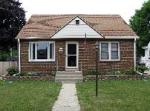 A couple days ago I shared the story of how the reverse mortgage was used to save Ken and Mary’s home from foreclosure. While we were able to make this happen now in just the 3 weeks we had, if we had received the call from Ken and Mary after August 1, 2010 when the new Minnesota reverse mortgage law is in affect, the ending would be different.
A couple days ago I shared the story of how the reverse mortgage was used to save Ken and Mary’s home from foreclosure. While we were able to make this happen now in just the 3 weeks we had, if we had received the call from Ken and Mary after August 1, 2010 when the new Minnesota reverse mortgage law is in affect, the ending would be different.
Because of the new 7-day “cooling off” period requirement, Ken and Mary would have lost their home. Why? Because the new law requires that borrowers receive and sign a commitment and then wait 7 days before the loan can be closed. This is in addition to the 3-day federal required rescission.
Let’s look at the timing. The loan was underwritten and cleared on a Friday, just 5 days before the payment was needed to be in the sheriff’s office. This, from my understanding is when the commitment would be issued. So if the commitment was issued on a Friday, the borrowers would need to receive the commitment, sign it and return it. Even if this was able to be implemented on Friday, the borrowers would need to wait 7 days before the closing could take place. (I’m assuming actual days, not excluding Sundays and Holidays as the 3-day rescission period does – this has yet to be defined.)
The 7th day would be the following Friday, already 2 days past the redemption date. Then we have the 3-day rescission period, Saturday, Monday, Tuesday. Funding would take place on the next Wednesday. This would have been 7 days after the redemption period. Seven days too late!
An additional risk of delay as a result of the new law could be the counseling. Currently reverse mortgage borrowers can receive counseling from HUD-approved counselors in the state or from a list of national counselors.
The new Minnesota law requires the reverse mortgage borrowers only receive counseling from HUD-approved counselors located in the state. Because there are only 7 counseling agencies in the state of Minnesota, with all borrowers needing to receive the counseling from these 7 agencies, borrowers could face a longer wait time to receive their counseling. Even now scheduling times with a counselor can be 2 to 3 weeks out. While they make some exceptions if one is in foreclosure, there could still be a longer wait to receive the counseling, not necessarily the next day as Ken and Mary were able to receive now.
Being processing of a reverse mortgage cannot start until after borrowers have received and signed the counseling certificate, the longer time frame could also mean the seniors losing their home.
The law makers, in an effort to “protect” seniors, will be causing some seniors to lose their home to foreclosure. Interesting enough the reverse mortgage bill was added as an amendment to the foreclosure bill.
 I’m glad we were able to help Ken and Mary save their home. It’s going to be a sad day come August 1st when we have to tell the “Ken’s and Mary’s” who call us and say we have 3 weeks to redeem our home from foreclosure, “Sorry, we can’t take your application, process, close and fund the loan in that time frame because there is a new law that says you have to find a counselor in Minnesota that can do your counseling tomorrow and then after the file is underwritten and ready to close you have to have a 7-day cooling off period in addition to a 3-day rescission period.” This will break my heart.
I’m glad we were able to help Ken and Mary save their home. It’s going to be a sad day come August 1st when we have to tell the “Ken’s and Mary’s” who call us and say we have 3 weeks to redeem our home from foreclosure, “Sorry, we can’t take your application, process, close and fund the loan in that time frame because there is a new law that says you have to find a counselor in Minnesota that can do your counseling tomorrow and then after the file is underwritten and ready to close you have to have a 7-day cooling off period in addition to a 3-day rescission period.” This will break my heart.
In my opinion, one senior losing their home because of the new law and an extra unnecessary “cooling off” period is one too many!
© 2010 Beth Paterson, Beth’s Reverse Mortgage Blog, 651-762-9648
This material may be re-posted provided it is re-posted in its entirety without modifications and includes the contact information, copyright information and the following link: http://wp.me/p4EUZQ-lA
Related articles:
- At The Eleventh Hour… Reverse Mortgage Used To Save MN Senior’s Home
- A Letter to Minnesota Governor Tim Pawlenty Regarding Reverse Mortgages
- Down To The Wire… The MN Reverse Mortgage Amendment Was Sneaked In and Likely To Have Negative Consequences For Seniors And Reverse Mortgage Businesses
- Do You Know The Best Kept Reverse Mortgage Secret in Minnesota?
Blog posts’ information is current as of date post published, program is subject to change in in the future. Contact us for current information, 651-762-9648.
This site or the information provided is not from, or approved by, HUD, FHA, or any US Government or Agency.






 As with a conventional mortgage, there are costs associated with a reverse mortgage. While perceived as high, once understood you’ll see the reverse mortgage
As with a conventional mortgage, there are costs associated with a reverse mortgage. While perceived as high, once understood you’ll see the reverse mortgage 




